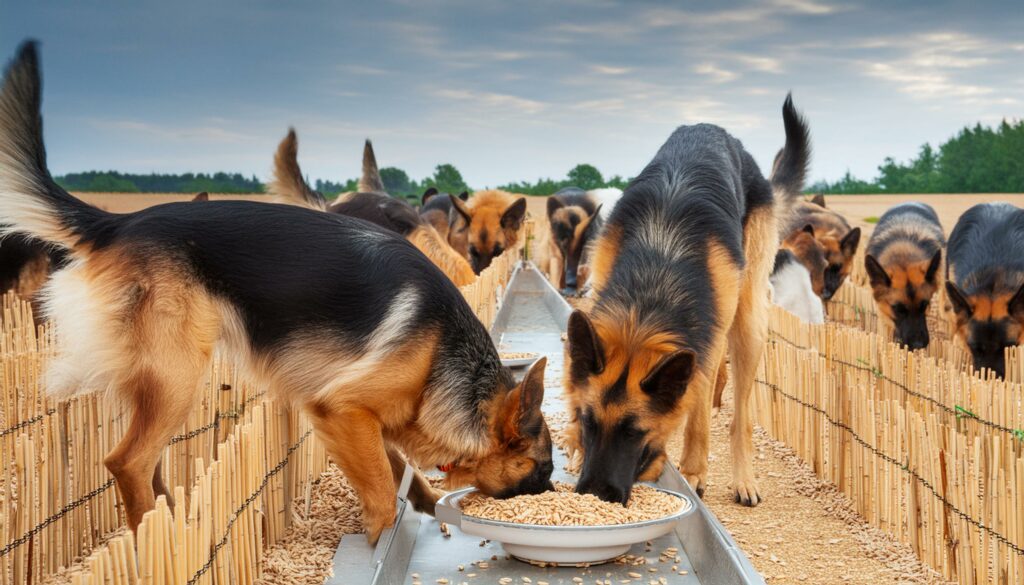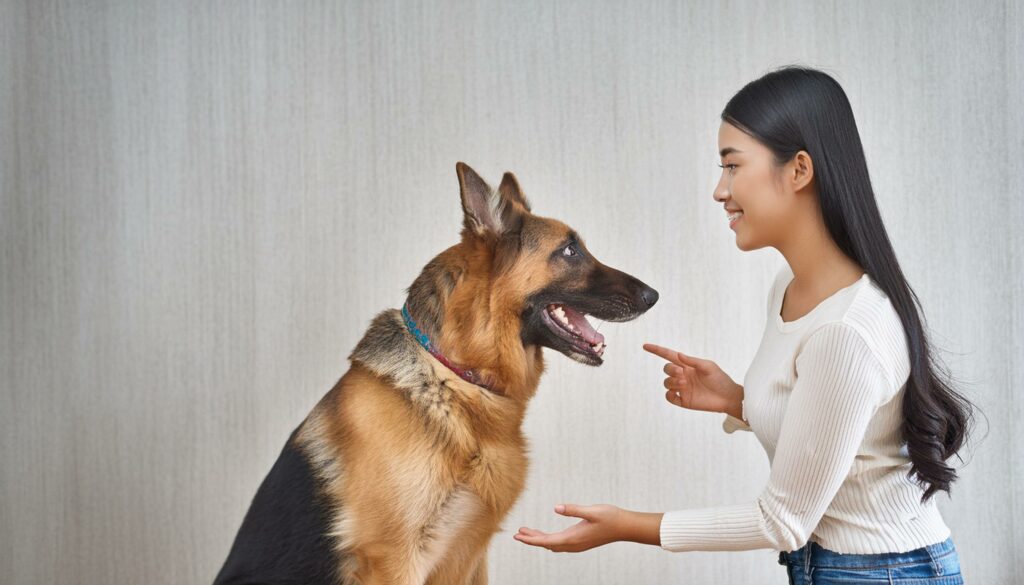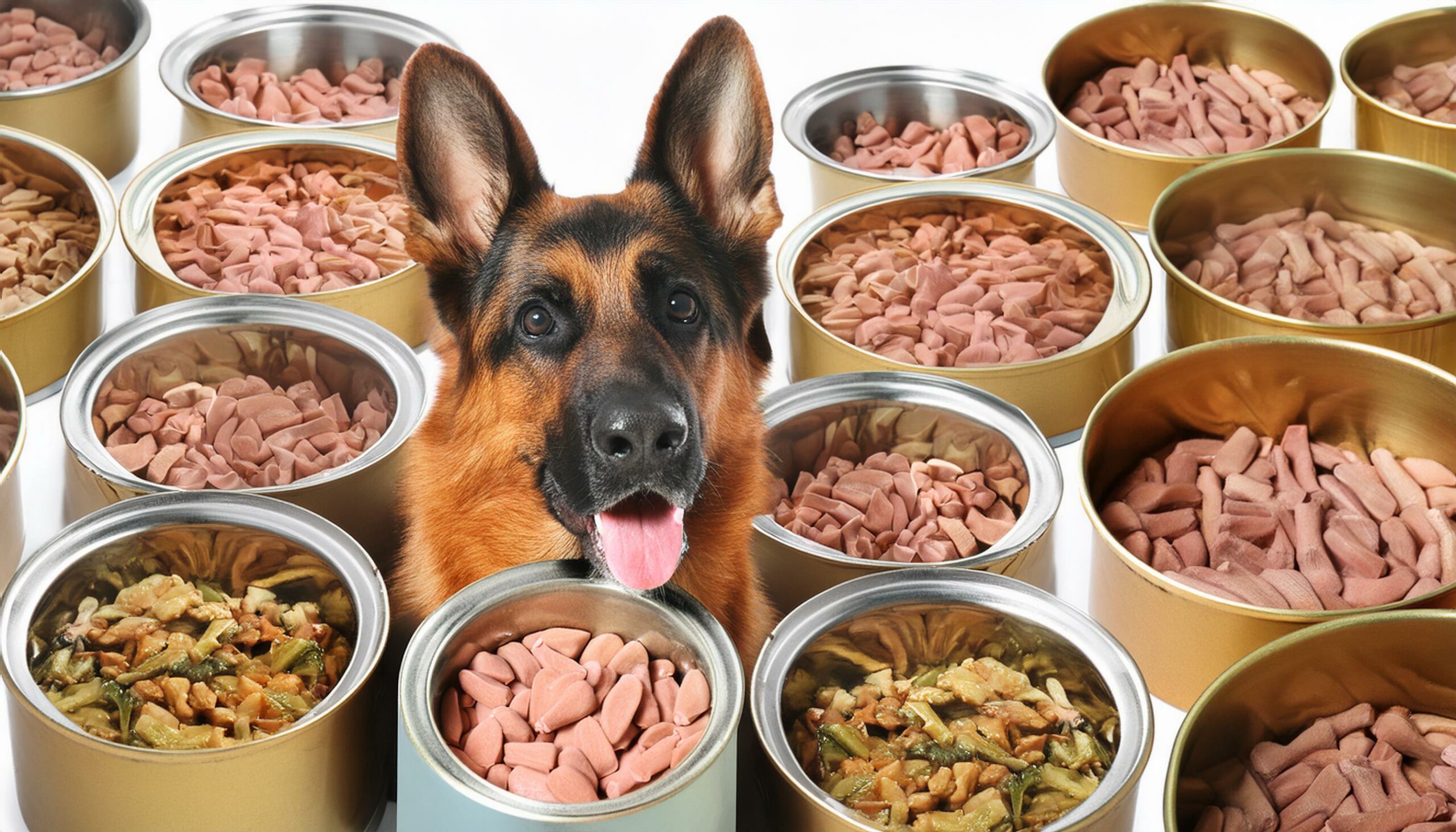German Shepherds are known for their intelligence, loyalty, and energetic nature. As responsible pet owners, it’s crucial to ensure they receive the right nutrition to thrive. One common question among German Shepherd owners is, “How many tins of dog food should a German Shepherd eat?” Let’s delve into this topic to understand the dietary needs of these majestic dogs.
Understanding German Shepherd Dietary Needs
Before determining how much to feed your German Shepherd, it’s essential to understand their nutritional requirements. Like all dogs, German Shepherds require a balanced diet consisting of proteins, carbohydrates, fats, vitamins, and minerals. However, their specific needs may vary based on factors such as age, weight, and activity level.
How Much Should a German Shepherd Eat?
Feeding guidelines for German Shepherds typically depend on their weight. As a general rule of thumb, adult German Shepherds should consume around 30 calories per pound of body weight per day. For example, a 60-pound German Shepherd would require approximately 1800 calories daily. This can be achieved by feeding a combination of dry kibble, wet food, or a mixture of both.
Feeding Puppies
Puppies have different nutritional needs compared to adult dogs. German Shepherd puppies require a diet that supports their rapid growth and development. It’s recommended to feed them three to four times a day until they are around six months old, gradually transitioning to two meals a day as they mature. Puppy food formulated for large breeds is often the best choice to ensure they receive the appropriate nutrients in the right proportions.
Feeding Adult German Shepherds

Adult German Shepherds usually thrive on two meals a day. However, some may prefer smaller, more frequent meals. It’s crucial to monitor their weight and adjust portion sizes accordingly. Active dogs may require more calories, while less active dogs may need fewer. Consulting with a veterinarian can help determine the ideal feeding schedule and portion sizes for your individual dog.
Special Dietary Considerations
Certain health conditions, such as hip dysplasia or allergies, may necessitate special dietary considerations. Additionally, some German Shepherds may have food sensitivities that require avoiding certain ingredients. It’s essential to be aware of any underlying health issues and choose a diet that meets your dog’s specific needs.
Choosing the Right Dog Food
When selecting dog food for your German Shepherd, opt for high-quality brands with wholesome ingredients. Look for options that list meat as the primary ingredient and avoid fillers such as corn, wheat, and soy. Reading and understanding dog food labels can help ensure you’re providing your dog with a nutritious diet.
Feeding Tips for German Shepherds

Establishing a consistent mealtime routine can help prevent digestive issues and maintain a healthy weight. Avoid free-feeding, as this can lead to overeating and obesity. Instead, measure out portion sizes according to your dog’s needs and feed at regular intervals. Providing plenty of fresh water is also essential for keeping your German Shepherd hydrated.
Consulting a Veterinarian
While these guidelines can provide a starting point for feeding your German Shepherd, every dog is unique. It’s essential to consult with a veterinarian to develop a personalized nutrition plan based on your dog’s age, weight, health status, and activity level. Your vet can offer valuable advice and recommendations to ensure your German Shepherd stays happy and healthy.
FAQs:
How often should I feed my German Shepherd?
Generally, adult German Shepherds do well with two meals a day, while puppies may require three to four meals until they reach six months of age.
Can I feed my German Shepherd human food?
While some human foods are safe for dogs in moderation, it’s essential to avoid feeding your German Shepherd anything that could be harmful, such as foods high in fat, salt, or spices.
What are some signs that my German Shepherd is not eating enough?
Weight loss, lethargy, and a decrease in appetite can indicate that your German Shepherd is not consuming enough food.
Are there any foods that German Shepherds should avoid?
Yes, some foods, such as chocolate, grapes, and onions, can be toxic to dogs and should be avoided.
How can I tell if my German Shepherd is overweight?
You should be able to feel your German Shepherd’s ribs without pressing too hard. If you can’t feel them or if your dog has a rounded appearance, they may be overweight.
Conclusion
Feeding your German Shepherd the right amount of food is essential for their overall health and well-being. By understanding their nutritional needs, choosing high-quality dog food, and consulting with a veterinarian, you can ensure your German Shepherd receives the proper nutrition to thrive.
